
Experts discussed the benefits and challenges of once-nightly versus twice-nightly oxybate regimens for narcolepsy, emphasizing adherence, patient lifestyle, and comorbidity considerations. [WATCH TIME: 5 minutes]

Experts discussed the benefits and challenges of once-nightly versus twice-nightly oxybate regimens for narcolepsy, emphasizing adherence, patient lifestyle, and comorbidity considerations. [WATCH TIME: 5 minutes]

Experts discussed REFRESH study data highlighting oxybates’ tolerability, effectiveness, and potential to reduce stimulant burden in patients with narcolepsy. [WATCH TIME: 5 minutes]
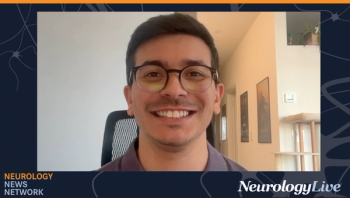
Neurology News Network for the week ending November 8, 2025. [WATCH TIME: 4 minutes]

Experts discussed the prevalence of comorbidities in narcolepsy and how targeted therapies, particularly oxybate, can improve both sleep quality and associated psychiatric symptoms. [WATCH TIME: 9 minutes]

Experts discussed findings, presented at the 2025 World Sleep Congress, showing how once-nightly oxybate improved adherence, quality of life, and partner burden in patients with narcolepsy. [WATCH TIME: 9 minutes]

Expert discusses the clinical reasoning, electrophysiologic tools, and consensus criteria that underpin accurate diagnosis and differentiation of CIDP from other neuropathies.

Panelists discuss how successful myasthenia gravis management requires early diagnosis and treatment, active listening to understand individual patient needs, shared decision-making, aggressive use of targeted therapies to achieve minimal symptom expression, and comprehensive patient education to support optimal care outcomes.

The chief medical officer at Dyne Therapeutics discussed the scientific rationale and clinical progress of z-basivarsen, an antisense oligonucleotide therapy designed to correct mis-splicing in myotonic dystrophy type 1. [WATCH TIME: 5 minutes]

An investigator at Kuakini Health Systems spoke about the global importance of the Honolulu-Asia Aging Study, highlighting its history and findings, including data surrounding the diagnosis of neurodegenerative diseases. [WATCH TIME: 11 minutes]

The neuroscience program coordinator at Loyola University Medical Center talked about a recent global nurse survey for those caring for patients with generalized myasthenia gravis. [WATCH TIME: 5 minutes]

The associate professor of clinical neurology at Keck Medicine of USC discussed advancements in therapeutics, the growing focus on biomarkers, and ongoing challenges in myasthenia gravis. [WATCH TIME: 4 minutes]

The associate professor of neurology at Yale School of Medicine discussed 52-week data from the phase 3 MINT trial of inebilizumab in patients with generalized myasthenia gravis. [WATCH TIME: 5 minutes]

The head of Rare Diseases US at UCB talked about the company’s latest data on rozanolixizumab and zilucoplan in patients living with generalized myasthenia gravis. [WATCH TIME: 3 minutes]

In this final segment, Joseph Sullivan, MD, outlines the rationale, design, and key considerations behind the phase 3 EMPEROR trial, which aims to confirm zorevunersen’s efficacy and potential disease-modifying effects in Dravet syndrome. [WATCH TIME: 3 minutes]
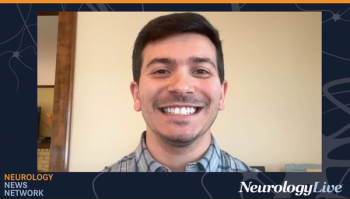
Neurology News Network for the week ending November 1, 2025. [WATCH TIME: 3 minutes]
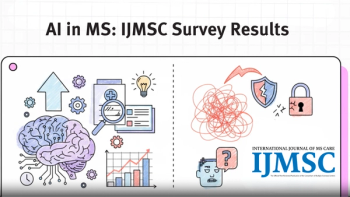
Video captures the sentiments and opinions of the IJMSC community on the use of artificial intelligence in multiple sclerosis care, research, and publication.

In this episode, epilepsy expert Joseph Sullivan, MD, explains how zorevunersen achieved meaningful seizure and developmental improvements even in patients already receiving highly effective antiseizure medications. [WATCH TIME: 3 minutes]

Panelists discuss how emerging treatments include cladribine (oral B and T cell targeting), telitacicept (BAFF/APRIL inhibition), remibrutinib (BTK inhibition), POSI (combination complement inhibition), chimeric antigen receptor (CAR) T-cell therapies, and tolerance-inducing approaches that may offer more durable responses and potentially curative treatments.

Panelists discuss how the future of myasthenia gravis treatment will involve expanded use of targeted therapies, combination treatment approaches, oral therapeutic options, earlier intervention strategies, and the need for better economic data and updated guidelines to support optimal patient care.

Epilepsy expert Joseph Sullivan, MD, detailed zorevunersen’s effects on adaptive behavior and communication skills, emphasizing improvements on the Vineland-3 scale that extend beyond seizure control. [WATCH TIME: 5 minutes]

In this episode, Joseph Sullivan, MD, reviews zorevunersen’s long-term safety profile, including cerebrospinal fluid protein changes, procedural effects, and the absence of clinically significant adverse events. [WATCH TIME: 3 minutes]

Epilepsy expert Joseph Sullivan, MD, reviews 36-month results from the zorevunersen program, highlighting durable seizure reduction and sustained efficacy following dose optimization. [WATCH TIME: 4 minutes]

The professor of clinical neuroscience at Newcastle University discussed selecting appropriate and representative patient populations across different phases of clinical trials for Parkinson disease. [WATCH TIME: 5 minutes]
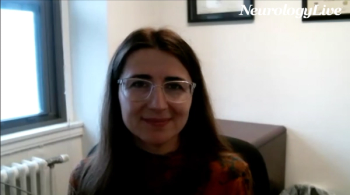
The assistant professor of neurology at Northwestern University shared important clinical insights for early-career clinicians entering neuroimmunology, emphasizing best practices in recognizing, testing, and confirming NMOSD. [WATCH TIME: 3 minutes]

In this final episode, Drs. Snelling and De Los Rios share lessons from building a coordinated, multi-hospital stroke system and how network integration improves speed, access, and outcomes. [WATCH TIME: 3 minutes]
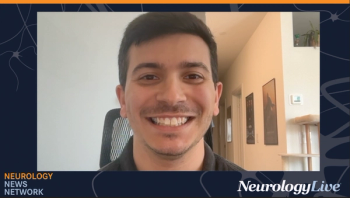
Neurology News Network for the week ending October 25, 2025. [WATCH TIME: 4 minutes]

In episode 4, neurologists Brian Snelling, MD, and Felipe De Los Rios, MD, discuss how stroke recovery and secondary prevention have evolved, highlighting new therapies, combination strategies, and the complexities of real-world implementation. [WATCH TIME: 4 minutes]

Panelists discuss how early treatment may protect the neuromuscular junction from permanent damage, prevent disease progression and crisis, and improve long-term outcomes. However, more data are needed from trials specifically studying patients with shorter disease duration rather than the typical average of 7 to 10 years.

Panelists discuss how treatment transitions are guided by shared decision-making between patients and providers, focusing on achieving minimal symptom expression, successful steroid tapering, and managing adverse events while considering early vaccination for complement inhibitor eligibility and personalized treatment approaches.

At CNS 2025, the associate professor of neurology and pediatrics at the University of Virginia discussed using educational model frameworks to prepare child neurology trainees for clinical practice. [WATCH TIME: 3 minutes]